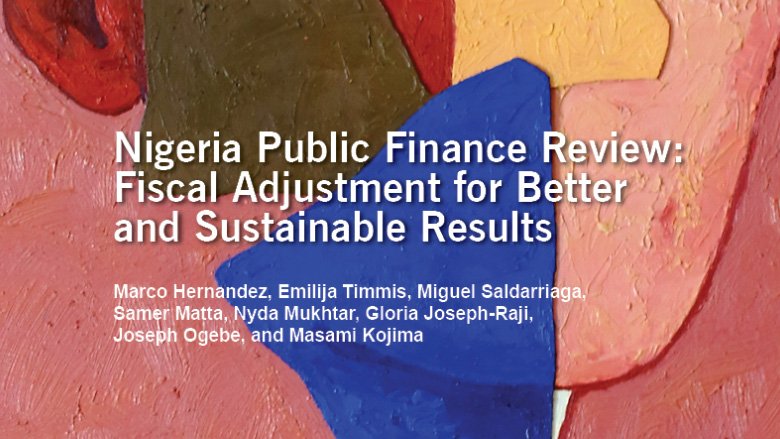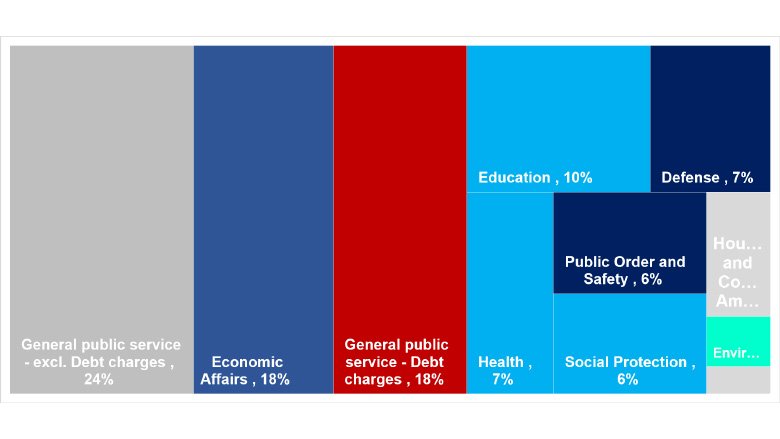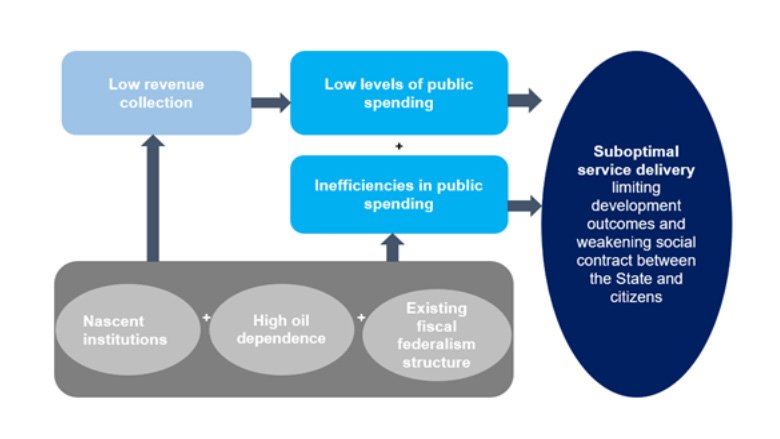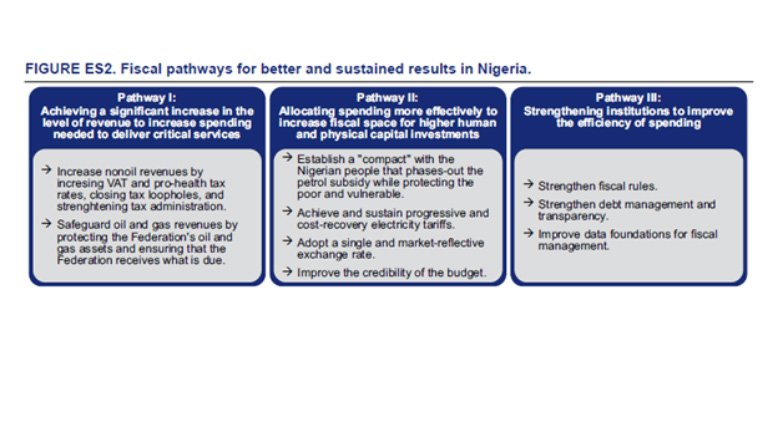Abuja, November 21, 2022 - To promote economic development, Nigeria needs to increase its spending from its current very low levels. Despite its vast development needs, Nigeria spends only $220 per Nigerian per year, and at merely 12% of GDP, this is one of the lowest levels of spending in the world. Unfortunately, low public spending translates into poor development outcomes. The country is among the eight economies with the lowest human capital in the world, ranked 167th out of 174 countries on the World Bank’s Human Capital Index. As a result, a child born in Nigeria today will only be 36% as productive when he grows up as he could be if he had access to effective education and health services. In addition, infrastructure needs also remain extremely high: to provide all the infrastructure the economy needs to maximize its potential, the country would need to invest $ 3 trillion by 2050.
Not only is spending low, but social sectors receive very little - less than a quarter of the national budget allocation. Compared with similar countries, Nigeria’s spending on social sectors – education, health, and social protection – is very low. In 2021, and at a time when the country was battling the COVID-19 pandemic, the average Nigerian received about $15 worth of public health services a year, compared to $55 per person in Indonesia. Low social spending limits the quantity and undermines the quality of health and education services that Nigerians can expect to receive. In turn, this reduces their chances of becoming productive workers and constrains private investment outside of the oil sector.
FIGURE 1: Social sectors receive less than one-quarter of the national budget allocation in 2021
General government (federal and state) budget allocations across government functions (percent of total national budget) 2021




